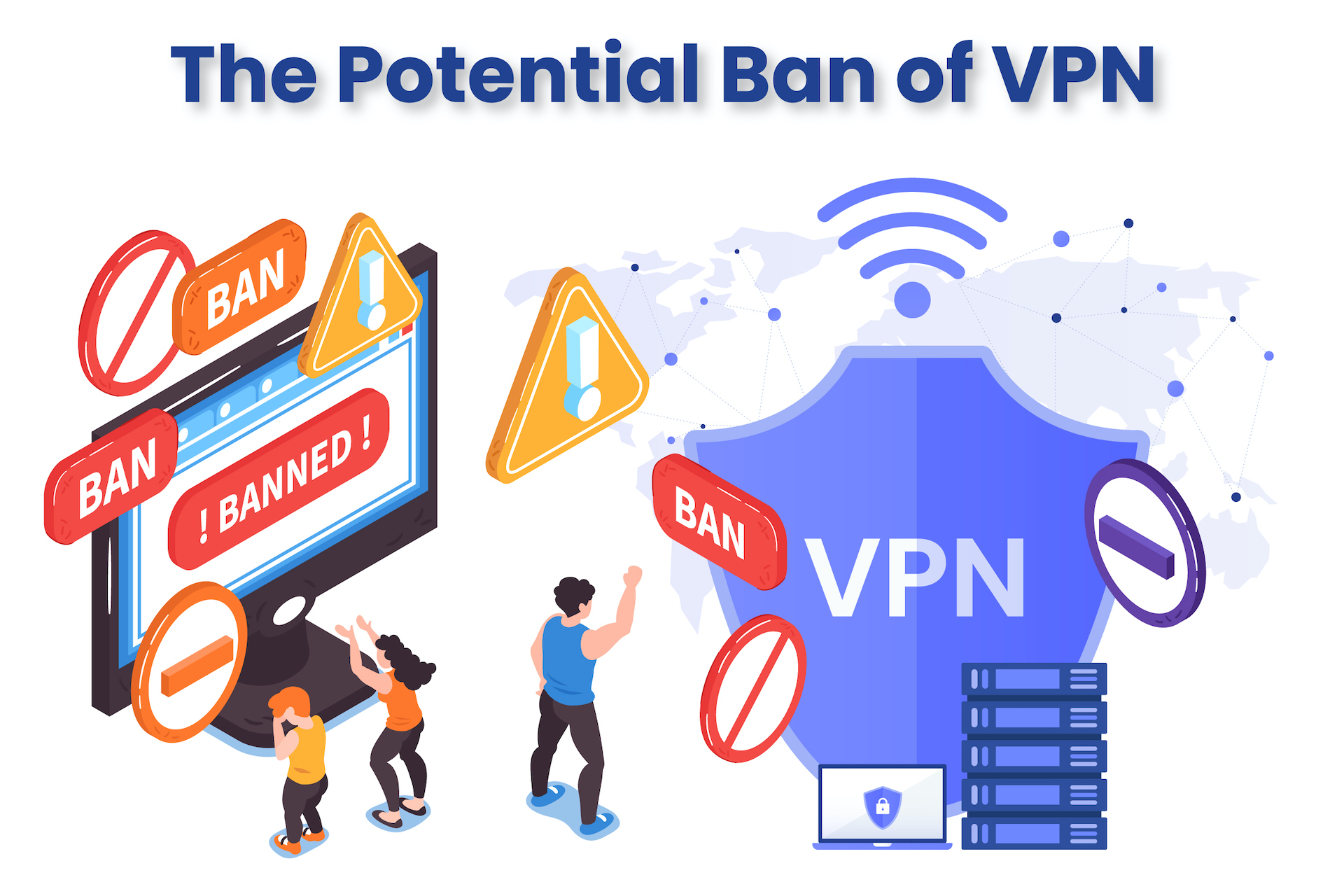The Parliamentary standing committee of home affairs recently submitted a report to the parliament which suffered a lot of criticism. The report recommends that VPN’s or Virtual Private Network services should be banned in India, in co-operation with the ISPs. However, to understand the issue completely, one first needs to understand all aspects related to the same and then form an opinion. This blog will assist one in doing that by explaining what VPNs are exactly, how are they beneficial, what is the reasoning behind this recommendation of Ban and what will be the possible consequences if the same happens.
What does VPN stand for?
VPN, the abbreviation for Virtual Private Network, is an Internet Service that allows people to access the Internet Securely, Anonymously and without any governmental or regulatory intervention. To understand how this happens one can consider the following example.
Consider the access to the internet as a river flowing through a Dam, where the Dam is the Internet Service provider and can monitor which platforms one access as all the information goes through them. A VPN is like a separate tunnel or canal that is built just beside the dam, connecting the flow of the river on either side of the dam. Through this tunnel, the river can still flow to the other side but there will be no monitoring or regulation by the Dam. Furthermore, since it’s a tunnel it will be free from any kind of external intrusion and compromise. While this example is not perfect, in explaining how a VPN Works and there are certainly other specifics as well, but it does broadly explain the concept.
How is a VPN beneficial?
- A VPN hides the IP address (A unique identifying id attached with each device getting on the internet) of the user by routing the traffic through their servers, and since the Internet Service provider can only monitor a user by the IP address (which the ISPs themselves provide while doing the Customer registration and after finishing up the Customer Acquisition forms), they won’t be able to do so, as the traffic will be associated with a different and random IP address which will difficult to track and associate with the user.
- A VPN also changes the location of the user accessing the Internet, thereby allowing them to access the platforms and content which is not allowed in the specific country or blocked by their ISP.
- This communication through VPN’s server is also secure and encrypted and hence adds an additional layer of protection and security towards the user accessing the Internet.
- It also prevents other platforms and websites from tracking the user’s actions as their IP address is hidden, thereby protecting the privacy of the user and prevent any targeted Advertisements or commercials from being broadcasted to them.
- Many organisations also use VPNs to allow their employees to remotely connect to their network while doing any work, as these employees are potentially open to greater threats and more vulnerable. This also helps in secure interdepartmental and inter-Organisation communication between the employees. This has also allowed the organisations to actually implement the Work-from-Home structures and keep their businesses running without running into the risks of data breaches or other incidents.
Rationale towards banning VPNs
The parliamentary committee has stated that it is becoming increasingly difficult for them to nab the criminals who use the garb of anonymity, by using the VPNs, to hide from any law enforcement intervention. The existing framework of legally getting all the information about any user who uses the Services of an ISP will not be useful against the individual who uses a VPN.
As per the committee, “The Committee notes with anxiety the technological challenge posed by VPN services and Dark Web, that can bypass cyber security walls and allow criminals to remain anonymous online. As of date, VPN can easily be downloaded, as many websites are providing such facilities and advertising them,”.
There is no doubt in the reasoning or the situation regarding the investigation of cybercriminals in this Country, However, there are considerable economic challenges associated with the recommendation which one cannot overlook. This includes:
- The biggest or rather most significant consequence would be faced by the corporate sector and IT Companies who are operating their businesses and operations during the Pandemic only through VPNs. A ban on VPNs would leave the companies vulnerable to several challenges such as compromised Information security, unsafe communication channels, loss of trade secrets and Intellectual Property, potential NDA violations and potential statutory obligations to pay fines in the likely scenario of a Data Breach.
- The individuals working with foreign organisations in India also faces issues. A ban on VPNs would mean the loss of jobs and livelihoods of these individuals along with the loss of Capital and potential Foreign Investment in India, especially in the IT sector. The pandemic has allowed the world to see the potential of remote operations in India (due to cheaper cost of standard of living in India, along with abundant workforce) and if this ban is bought in the IT companies and organisations would not employ this highly capable Indian workforce, as they cannot compromise with data and information security due to heavy fines and liabilities imposed by International Privacy Watchdogs.
Overall, the ban would affect the individuals who wish to protect their privacy online, engage in secure communications and don’t prefer being spied upon by the ISPs or being tracked and monitored by the social media companies and search engines to feed them ads and have any data with them whatsoever.
Author – Mr. Hrishikesh Bedi, Consultant, CyberPeace Foundation
Reviewed by– Ms. Kankana Dutta, Manager – Research and Projects, CyberPeace Foundation




